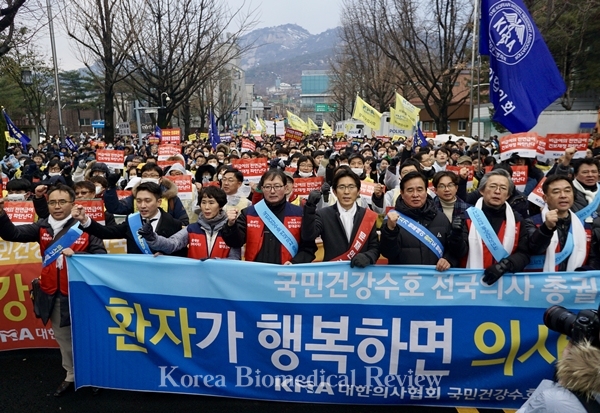Top 10 Medical News ①

President Moon Jae-in’s policy of drastically expanding national health insurance coverage, dubbed “Mooncare,” is rocking the medical community to the core. The new healthcare policy aims to raise the share of insured healthcare to 70 percent by 2022 from the current 63 percent. The Ministry of Health and Welfare estimates that the new policy would require 30.6 trillion won ($28.3 billion) in additional funds.
As the government announced the new healthcare policy in August, the medical community raised their voices of concerns. The biggest issue is financing. Physicians are suspicious that the government’s estimation of finance for Mooncare was too low, worrying that the government might offer too low reimbursement rates for medical care.
Although Moon publicly vowed to guarantee “a proper level of reimbursements” to assure physicians, the medical community is still full of distrust of the government. Even if the government offers proper reimbursements to cover the cost of medical care, doctors worry that the payments could be cut through evaluations by the Health Insurance Review & Assessment Service.
More than 30,000 physicians held a street rally in Seoul on Dec. 10 to protest Mooncare, four years after demonstrating against the government’s policy of allowing telemedicine system between patients and physicians.
The Korean Medical Association’s emergency planning committee held the “Rally by Physicians from Across the Country to Protect the People’s Health” in front of the Deoksu Palance, central Seoul. About 30,000 doctors marched toward Cheong Wa Dae, demanding the normalization of reimbursement rates and an overhaul of the reimbursement evaluation system.
After the rally, Moon pledged again to guarantee proper reimbursements for medical care. The health-welfare ministry and the KMA’s emergency planning committee set up a consultation body to discuss further. However, the two sides have failed to speed up their discussion.

